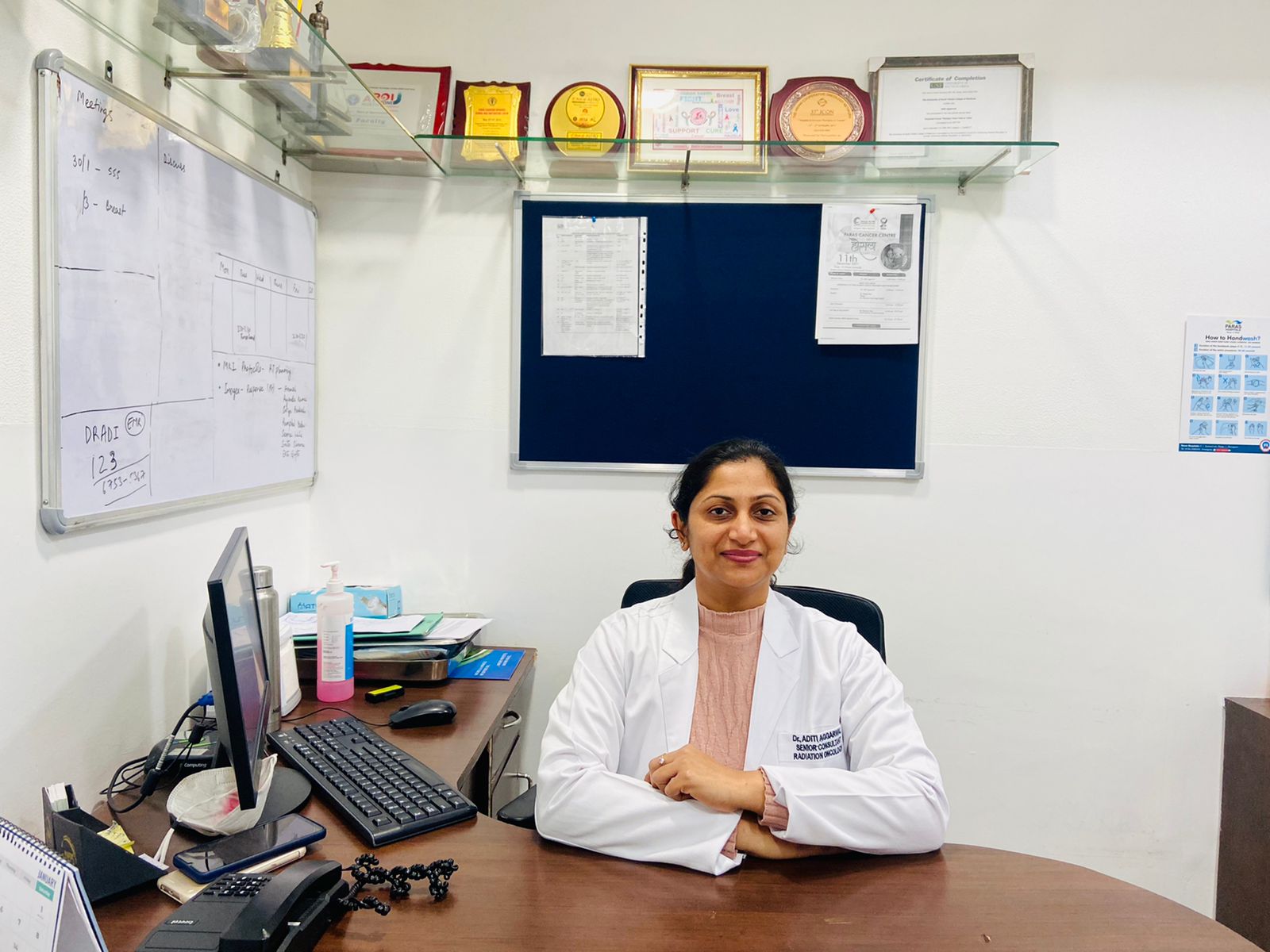Ashish
Our Patient

Speciality
: Associate Director Radiation OncologyHospital
: Max Super Speciality Hospital, SaketLength of Work
: Since 2010Medical Education
: MBBS FROM Lady Hardinge Medical CollegeCertifications
: Young Investigator award by British Journal of Radiology (2014) Presentation at ASTRO 2012 at Boston, USAPhone
: +91-7982047515An expert radiation oncologist, dr. Aditi Agarwal is trained from the prominent Tata Memorial Hospital Mumbai. The expert has been prepared for all the modern and precise radiation techniques like IGRT, sbrt SRT, and SRS. She holds the experience of more than a decade in the niche of radiation oncology. Previously, she worked as the National Cancer Institute All India of Medical Sciences Jhajjar founder. At the institute, she started radiation services like Brachytherapy. Dr. Aditi Agarwal chose radiation oncology as her career after doing MBBS from lady Hardinge Medical College Delhi.
During her college years, she won several gold medals and awards for academic excellence. In different national and international journals, she has penned down her publications. Her research work is presented at other international and national conferences where she has been involved in teaching and training potential medical professionals. At Tata Memorial Hospital Mumbai, she is involved in various research projects and has a keen interest in the gynecological brain, head neck, gastrointestinal sarcomas, and tumors. The best part is that she has worked and trained at the apex institute of India like Tata Memorial Hospital Mumbai and All India Institute of Medical Sciences.
Years of Experience
Medical Spesialities
Happy Smiles
National Awards
Dr. Aditi Aggarwal has worked in radiation oncology for ten years, treating patients with thoracic cancer, gastrointestinal cancer, bone and soft tissue cancer, gynecological cancer, breast cancer, and neurological cancers.
As a medical doctor, Dr. Aditi Aggarwal holds an MBBS degree from Lady Hardinge Medical College Delhi, a MD degree in radiation oncology from VMMC and Safdarjang Hospital Delhi, as well as a post-doctoral diploma in cancer research from Catalyst Clinical Sciences in Pune.
Cancer is usually classified into four stages, with stage 0 being the earliest stage and stage IV being the most advanced. The stage of a cancer is an important factor in determining the prognosis and the best treatment options. Here's a brief overview of the different stages of cancer:
Stage 0: This is the earliest stage of cancer, and it refers to cancer that is still in its original place and has not spread to other parts of the body. It is also known as carcinoma in situ.
Stage I: This stage means that the cancer is still small and has not spread to other parts of the body. It may be treatable with surgery or other local treatments.
Stage II: At this stage, the cancer is larger and may have spread to nearby lymph nodes. It may be treated with surgery and/or radiation therapy, or other systemic treatments such as chemotherapy.
Stage III: This stage means that the cancer has spread to nearby tissues or organs and/or to distant lymph nodes. Treatment may involve a combination of surgery, radiation therapy, and/or systemic treatments such as chemotherapy.
Stage IV: This is the most advanced stage of cancer, and it means that the cancer has spread to other parts of the body, such as the liver, lungs, bones, or brain. Treatment at this stage is typically palliative, meaning that it aims to relieve symptoms and improve quality of life, rather than cure the cancer.
It's important to note that the staging of cancer can vary between different types of cancer and different systems used to classify the stages. Your healthcare provider can give you more information specific to your situation.
There is no single vaccine that can prevent or cure all types of cancer. However, some vaccines can help prevent certain viral infections that can increase the risk of certain cancers, such as the human papillomavirus (HPV) vaccine, which can help prevent HPV-related cancers such as cervical, vaginal, vulvar, and anal cancer.
Additionally, some cancers can be treated with a type of immunotherapy called cancer vaccines, which help stimulate the body's own immune system to recognize and attack cancer cells. These vaccines are still in the experimental stage and are only available through clinical trials.
However, there are many things you can do to reduce your risk of developing cancer, such as eating a healthy diet, maintaining a healthy weight, avoiding tobacco products, and getting regular cancer screenings. Your healthcare provider can give you more information on how to reduce your risk of cancer.
The symptoms of cancer can vary depending on the type and part of the body of cancer, as well as its stage. Some common symptoms of cancer include:
It's important to keep in mind that these symptoms can also be caused by other conditions, and not all of them are present in all cases of cancer. If you are experiencing any symptoms that are new or persist for a long time, it's important to talk to your healthcare provider to determine the cause and get appropriate medical attention. Early detection and treatment of cancer can often lead to better outcomes.
Through us, you can schedule a Dr. Aditi Aggarwal priority appointment. Request a callback or dial 7982047515 to reach us.